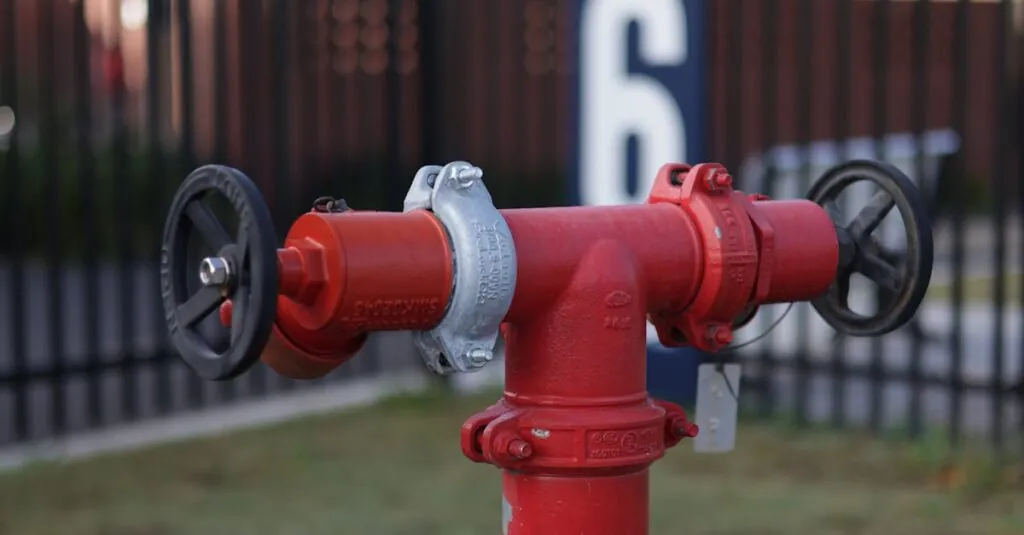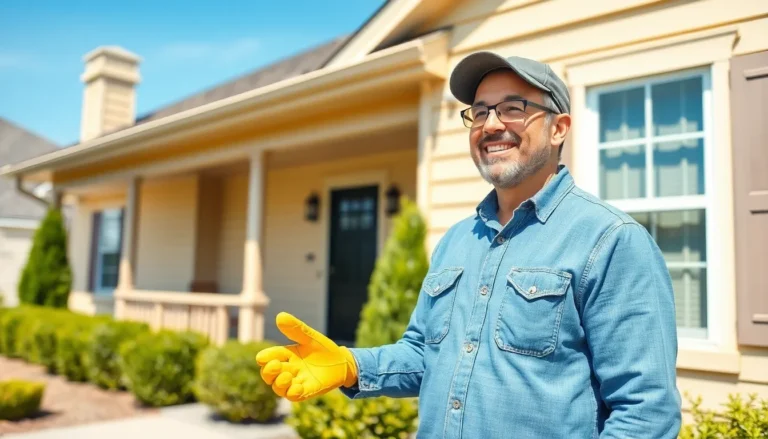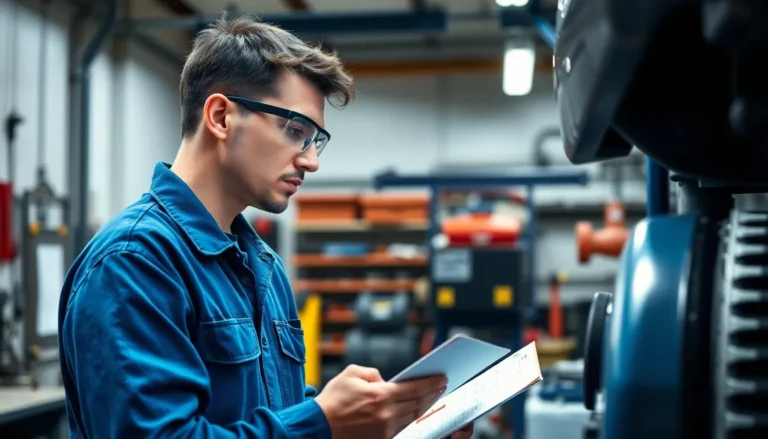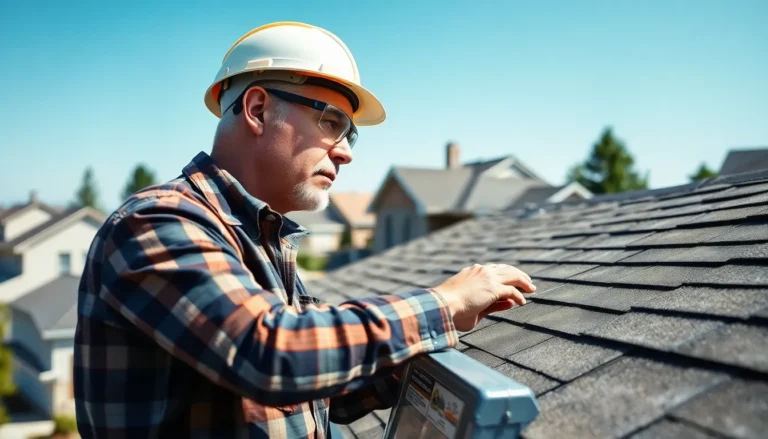When it comes to gas systems, a little maintenance goes a long way. Picture this: a well-oiled machine chugging along, keeping homes warm and cozy. Now imagine that machine throwing a tantrum because it skipped its yearly check-up. Not pretty, right? A gas system maintenance checklist isn’t just a boring list; it’s your ticket to peace of mind and a happy, functioning home.
Table of Contents
ToggleImportance Of Gas System Maintenance
Regular maintenance of gas systems is crucial for safety and efficiency. Ignoring maintenance can lead to gas leaks, which pose significant health risks and property damage. Additionally, an unmaintained system often operates less efficiently, increasing utility bills and carbon emissions.
Performing routine inspections ensures that all components work properly. Checking connections and seals can prevent leaks and malfunctions, reducing the risk of fire hazards. Maintaining appliances, such as furnaces and water heaters, enhances their lifespan, resulting in long-term savings.
Detection of potential issues is another benefit of systematic maintenance. Technicians often identify minor concerns before they escalate into costly repairs, preserving system integrity. Addressing problems proactively contributes to a more comfortable living environment, reducing disruptions in daily life.
Compliance with regulations is essential, too. Many jurisdictions mandate regular inspections to ensure safety standards. Keeping up with maintenance helps avoid fines and enhances property value.
Improving air quality also falls under the importance of gas system maintenance. Ensuring proper ventilation and functionality prevents harmful gases from accumulating indoors. Regular service not only maintains operational efficiency but also protects inhabitants’ health.
Overall, consistent maintenance offers peace of mind. Homeowners can rest easy knowing their gas systems are safe and efficient. Prioritizing maintenance ultimately leads to a more enjoyable and secure living space.
Key Components Of A Gas System
Key components play a crucial role in the functionality of a gas system. Understanding these components ensures proper maintenance and safety.
Gas Supply
Gas supply refers to the source that provides fuel for appliances. Supplies can include natural gas lines or propane tanks. Ensuring a consistent supply of gas helps maintain appliance efficiency. Regular checks on gas meters and connections prevent disruptions. Furthermore, leaks should be addressed immediately to reduce safety risks.
Gas Pipes
Gas pipes transport fuel from the supply to various appliances. Pipes must be inspected for corrosion, leaks, and damage. Maintaining proper insulation around pipes prevents heat loss and improves efficiency. Additionally, gas pipe connections should remain tight to avoid leaks. Routine checks enhance system longevity by identifying potential issues before they escalate.
Safety Valves
Safety valves protect the gas system from pressure overload. These valves automatically shut off the gas supply in emergencies, ensuring safety. Regular testing of safety valves confirms they function correctly. Replacing malfunctioning valves immediately prevents dangerous gas accumulation. Compliance with local regulations regarding safety valves increases overall system reliability.
Gas System Maintenance Checklist
Regular checks and activities keep gas systems running efficiently. A thorough maintenance checklist ensures a safe and comfortable living environment.
Daily Maintenance Tasks
Inspecting gas appliances for any unusual signs should happen every day. Look for unusual odors or sounds that indicate potential leaks or malfunctions. Monitoring usage can aid in identifying sudden spikes in gas consumption. Ensuring vents aren’t blocked serves to maintain proper airflow. Regularly checking the condition of pilot lights and ignitions helps detect ignition issues early.
Monthly Maintenance Tasks
Monthly inspections of gas pipes and connections prevent leaks from going unnoticed. Checking for corrosion and signs of wear on pipes is crucial. Tightening loose fittings supports overall system integrity. Observing the condition of the gas meter allows detection of irregular consumption patterns. Making sure safety valves function properly ensures no dangerous pressure builds occur.
Annual Maintenance Tasks
Annual maintenance requires a comprehensive inspection of the entire gas system. Scheduling professional assessments enhances safety measures and identifies hidden issues. Ensuring combustion appliances receive a thorough cleaning contributes to optimal performance. Verifying compliance with safety regulations plays a vital role in maintaining standards. Checking the overall integrity of the gas supply system ensures efficiency and helps avoid costly repairs.
Common Issues And Solutions
Gas systems can present several issues that require prompt attention.
Gas Leaks often develop due to aging pipes or connections. Regular inspections help identify these leaks early. It’s crucial to act immediately if a leak is suspected.
Pressure Imbalances in the system can lead to inefficient appliance performance. Monitoring pressure levels routinely allows for adjustments to ensure optimal function.
Corrosion affects gas pipes over time and can cause significant problems. Conducting monthly checks on pipe integrity prevents serious safety risks. Replacing corroded sections promptly mitigates potential hazards.
Faulty Safety Valves pose a significant threat to any gas system. Testing these valves during annual maintenance guarantees they operate correctly. Ignoring valve functionality can lead to severe consequences.
Inconsistent Gas Supply may indicate blockages or irregularities in the supply line. Identifying these issues requires immediate inspection of gas meters. Ensuring uninterrupted supply enhances overall appliance performance.
Unusual Sounds from Appliances can signal underlying problems. Recognizing strange noises during daily checks prompts necessary inspections. Addressing these signs can prevent more extensive system failures later.
Inadequate Ventilation can affect indoor air quality. Monitoring vents and ensuring they are clear improves airflow throughout the space. Adhering to this practice supports a healthy living environment.
Focusing on these common issues and their solutions enhances gas system reliability. Taking proactive steps ensures the safety and efficiency of gas appliances. Regular maintenance promotes a secure and comfortable home atmosphere.
Regular gas system maintenance is vital for a safe and efficient home. By adhering to a comprehensive checklist, homeowners can prevent costly issues and ensure their systems operate smoothly. Routine inspections not only enhance safety but also improve the longevity of appliances, contributing to a comfortable living environment.
Proactive care helps identify potential problems early, reducing the risk of gas leaks and health hazards. It’s essential to stay compliant with safety regulations while also enhancing indoor air quality. With a structured maintenance approach, homeowners can enjoy peace of mind knowing their gas systems are reliable and secure. Prioritizing maintenance today leads to a safer and more efficient home tomorrow.










